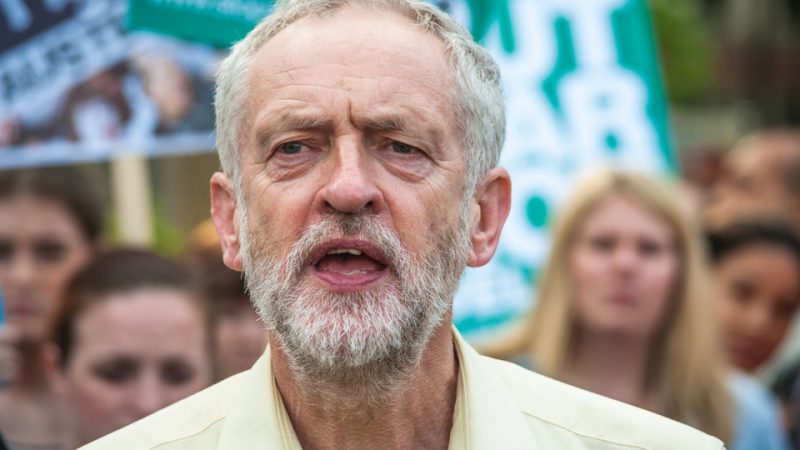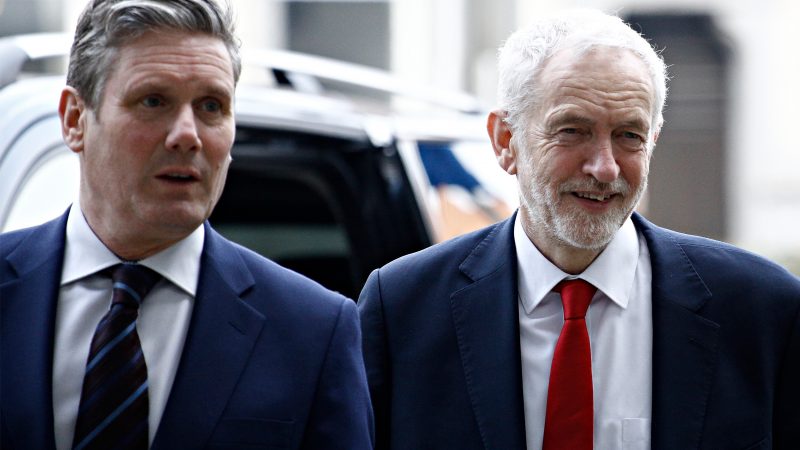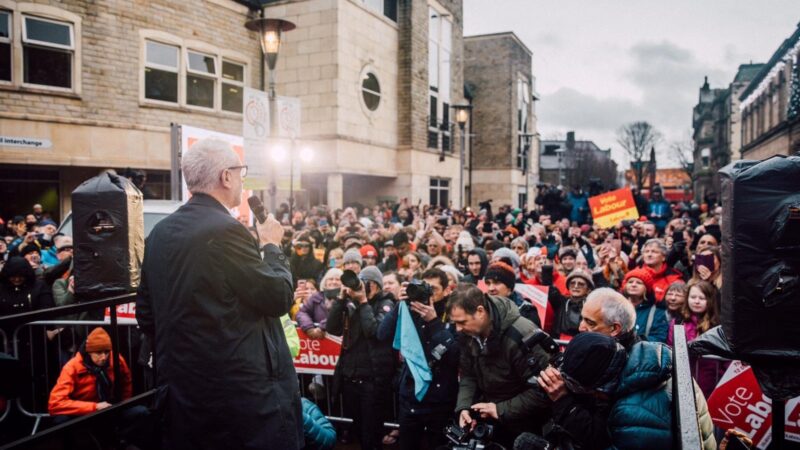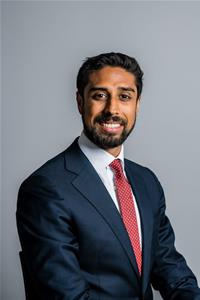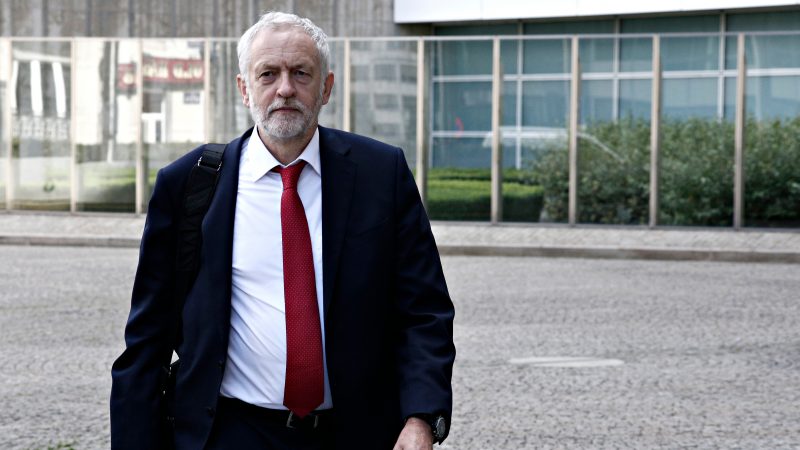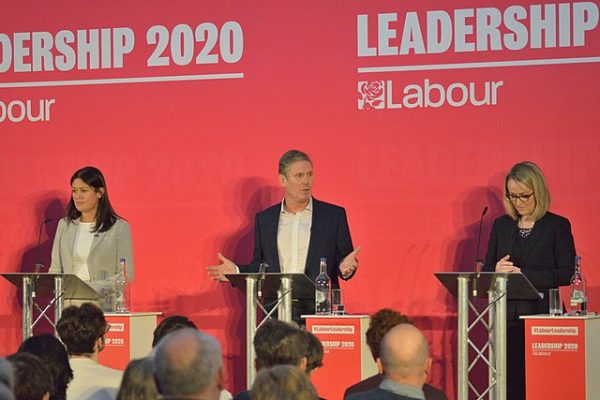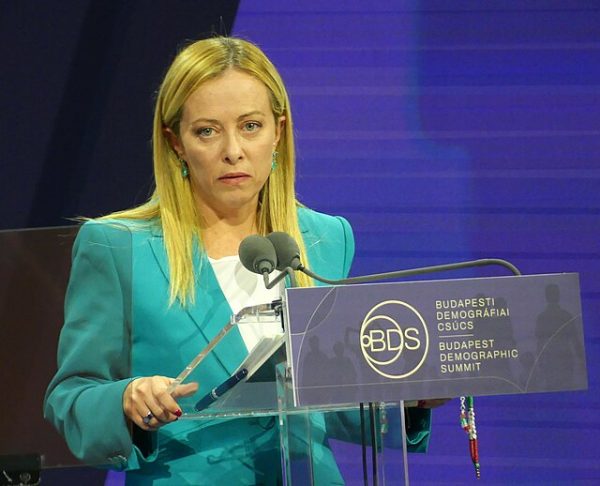'We urge all political parties to embrace these priorities and commit to a future where everyone has the security for the essentials'

Opinion
Now that an election has been called, every party should set out its plan to end the need for food banks in the UK and start to reverse the appalling rises in severe hardship and destitution. The public will judge the next government on whether it succeeds in reversing this tide.
Currently 79% of the UK public agree that poverty in the UK is a big problem, and 74% believe that it is the UK government’s responsibility to change this.
In the past year, food banks in the Trussell Trust network distributed more than 3.1 million emergency food parcels – the highest number in our history. This includes more than 1.1 million parcels for children and is almost double the number of parcels distributed five years ago.
These numbers are extremely shocking, and the message is clear, this cannot be allowed to continue. The food banks in our network do an incredible job supporting people facing hardship in their communities, but they are reaching breaking point.
We live in one of the wealthiest countries in the world and yet people who need the most support are being left to struggle on incomes so low they can’t even afford the essentials we all need to survive. This is having devastating consequences on our society, damaging our health, harming the prospects of young people, and holding back our economy. An economy does not thrive while the people who have the least are trapped in poverty and are forced to turn to charities, rather than receiving support from the very systems that were designed to protect them from harm.
We know what’s needed to end the need for food banks, and we know that it is achievable but decisive action is needed. That’s why we launched our manifesto which sets out our priorities for the next UK Government and the actions we urge all political parties to support in order to build a more hopeful future.
The increase in the level of need seen by food banks is largely driven by the fact that people simply don’t have enough money to afford food and other essential living costs. Our social security system is supposed to be there for us when times are tough, but it is currently failing in its most basic duty: to protect people from going without essentials. It is unacceptable that, last year, four in ten families receiving Universal Credit faced hunger, and one in five have been forced to turn to a food bank for help. It is a failing of our society that anyone should be forced to use a food bank because they can’t afford food, clothing, heating or other essentials.
Ensuring the UK’s social security system is fit for purpose and provides enough support for people to afford the essentials is critical for building a future without the need for food banks. We are calling for an Essentials Guarantee, which would embed in legislation the principle that Universal Credit should protect people from going without essentials. Deductions from benefits for debt or caps to benefits for some families should never take their income below this level.
We also need to ensure everyone can get the right support at the right time, to prevent tough times turning into crises and spiralling into longer lasting hardship. When people are unable to access support, their health, employment, and relationships suffer. Our research indicates that people referred to our food banks have often exhausted support networks such as family and friends, or do not have these support networks to turn to at all.
Too many reach a food bank without having received advice or help which could have prevented their situation deteriorating. That’s why we need a long-term approach to local crisis support that prioritises cash grants, money advice and preventative support services. This is particularly urgent given the funding crisis facing so many councils and the end of the Household Support Fund in September this year.
We are also calling for a UK financial inclusion strategy that prioritises people in need by ensuring people on low incomes can access the advice and support they need on money matters, including social security eligibility and debt, and have access to affordable credit to prevent people being pulled further into hardship through unaffordable debt.
Crucially, people should also be supported in a way that reflects the reality of their lives. Parents, carers, and disabled people are disproportionately likely to need the support of food banks. In fact, the majority (69%) of people referred to food banks in the Trussell Trust network are disabled. Therefore, we need swift and accurate decisions about disability social security support for all applicants. In addition, we need to see an overhauled employment support offer, including a rapid expansion of voluntary, specialist employment support, integrated with mental health provision and work with employers to open up more flexible, secure jobs for disabled people and carers.
Finally, everyone should have the security we all need to access opportunities and have hope for the future. Preventing people ever needing to turn to a food bank requires embedding security across people’s lives – in their finances, work and housing. However, the prevalence of insecure, part-time, and poorly paid work, combined with unaffordable and unsafe housing, has created an extremely precarious situation for people.
We can turn this around by embedding new workers’ rights legislation to ensure rights to job security, predictable working hours and flexible working. Alongside this, we’re calling for the investment in building 90,000 new social homes every year in England, to provide the dignity of a safe, secure, and affordable place to live.
These solutions are well within our reach, but we need every part of our society to work in partnership to drive this change – civil society, employers, businesses and all levels of government acting together with people who’ve needed a food bank, individuals and communities. We urge all political parties to embrace these priorities and commit to a future where everyone has the security for the essentials, so we can end the need for food banks for good.
(Photo credit: Jess Hurd)




